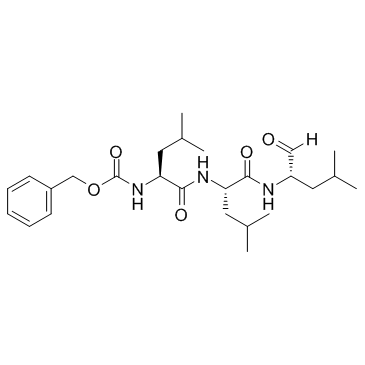| 结构式 | 名称/CAS号 | 全部文献 |
|---|---|---|
 |
B-苄氧羰基-亮氨酸-亮氨酸-正缬氨酸
CAS:133407-86-0 |
|
 |
蛋白酶体抑制剂
CAS:133407-82-6 |